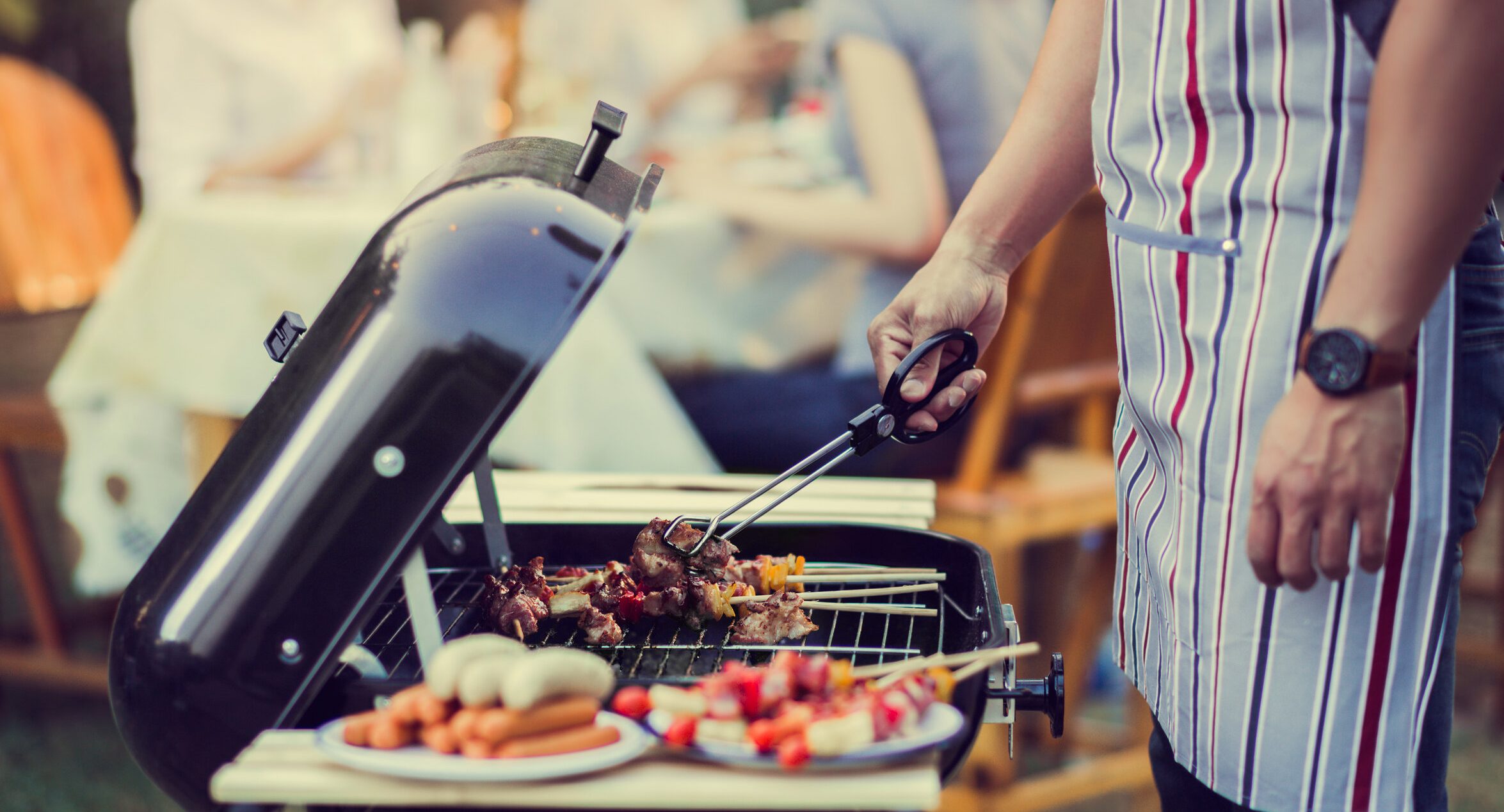Although lockdown restrictions have once again been eased and people can now enjoy the food of their favourite restaurants indoors, many venues will continue to provide an alfresco offering.
National BBQ Week is just around the corner on July 2-11 and many customers will be flocking to their favourite eatery or local pub in the search for some burgers and hotdogs, or perhaps they will host their own. However, it is important to remember the risks and potential hazards that we are often met with when dining outside
Here, Kirstie Jones, environmental health expert at Navitas Safety, a global safety net for the foodservice and hospitality industry, explains the risks of eating alfresco, BBQs, and how businesses can ensure ultimate food safety standards.
Whilst we can now officially eat indoors, we are also about to enter the warmer, summer months here in the UK. Yet, many pubs, restaurants and hospitality venues will continue to offer customers the choice to sit outside. With barbecue season almost upon us, many of them will also no doubt provide an outdoor kitchen experience, too.
As with anything else, customers seek an entire experience and so, a simple meal is no longer enough. Customer service, atmosphere and food’s quality and safety all equate to a 5* dining experience.
There are several things for businesses to consider and monitor when serving up barbecue style food, ensuring the highest food safety standards are met. This also goes for those looking to host their own barbecue, picnic, or garden party at home.
And Matthew Hoggard, former English cricketer and founder of Hoggy’s Grill, a cookery school and grill shop, explains that we should expect to see an influx in outdoor dining, and of barbecues in particular.
“We’ve already seen a massive upturn in sales of grills, so people are intending to stay at home and entertain instead of going abroad.
“We’re going to see lots more barbecuing, a lot more alfresco dining and a lot more of people enjoying what Great Britain has to offer,” he said.
Avoiding contamination
There are various ways in which businesses can avoid cross-contamination and this is pivotal to ensuring food safety.
It goes without saying, especially as lockdown restrictions are eased, remaining clean and hygienic is essential. Anybody that is handling food should ensure they regularly wash their hands to prevent passing on any bacteria.
Barbecue food safety golden rule: separate raw and cooked foods. Particularly on barbecues, the two main hazards are undercooking meat and spreading germs from raw meat onto cooked foods.
To reduce the risks of contamination, we advise using separate plates, utensils, chopping boards and surfaces when handling both cooked and raw meats.
It’s important to remember to never place cooked meat on a plate which has held raw meat, as the germs and bacteria will still be there. If you’re short on plates and chopping boards, be sure to wash them thoroughly between uses.
Properly defrosting all meat prior to cooking will also help mitigate food safety risks. This applies to poultry, red meat, and fish. By defrosting your meat, this ensures that the heat from the barbecue is distributed evenly, and therefore cooks the meat evenly, too – the secret to safe and expertly cooked meats!
Hoggard also emphasises the importance of maintaining food safety. He said, “People should use a food thermometer, cooking to temperature and not to time.
“People should ensure they clean their tongs and utensils in between handling raw food and turning over cooked food.”
Say no to food poisoning
As hungry as customers may be, don’t rush to cook the food. Ensure that everything is cooked through and piping hot before serving. To aid this, it is important to wait for the barbecue to reach the right temperature before beginning to cook.
It can be hard to keep track of what food went on the barbecue first and whether it is time to turn something over, but this is where a smart automated temperature probe comes in handy.
Safety comes first and it is better to be over cautious than to risk food poisoning or serve customers uncooked foods. Digital food safety tools can not only automatically record the temperature of cooked foods but also ensures that food is being stored and traced correctly.
It isn’t just food poisoning to consider, though. Businesses and barbecue hosts must also pay great attention to those with allergies, intolerances, and alternate dietary requirements.
Digital food safety systems can protect customers by providing businesses with a quick and easy way to see, control and track ingredients (especially allergens) – from suppliers, right through to the plates of consumers.
Barbecues aren’t just for meat-eaters, and there is now a plethora of vegan and vegetarian barbecue options. With that in mind, it is vital for chefs and staff to ensure that meat is both stored and cooked separately to meat-free alternatives.
Deter flies, pests, and bugs
The only downside to warmer, sunnier weather, is that we often see an influx in the number of flies and bugs outside, particularly near food – which isn’t really what we want come barbecue season.
There are a number of ways to deter and repel insects, flies, and pests. However, first and foremost, remember to cover all foods to prevent any unwanted visitors from landing on top of foods.
Flies and insects carry bacteria, viruses, and parasites and the longer they are on your food, the higher the chance of getting ill from such. So, covering all foods is key for food safety.
Secondly, ensure that all bins are secure and properly shut. Whilst the bin presumably won’t be all that close to the food and cooking stations, you don’t want to give them any more reasons to swarm your food. Similarly, any food or liquid spillages should be cleaned up immediately.
Whilst it can be a rather difficult task to keep flies and insects away entirely, it is worth trying a few additional tricks to keep them away. Flies in particular don’t like the smell of lemon, so try cutting lemons in half and placing them in bowls throughout any areas with food.
Get BBQ ready
Armed with the right digital food safety tools, combined with the eagerness of guests to bask in the sun with the smell of a barbecue filling the air, businesses can rest assured that their venues and food services will be a huge success.



